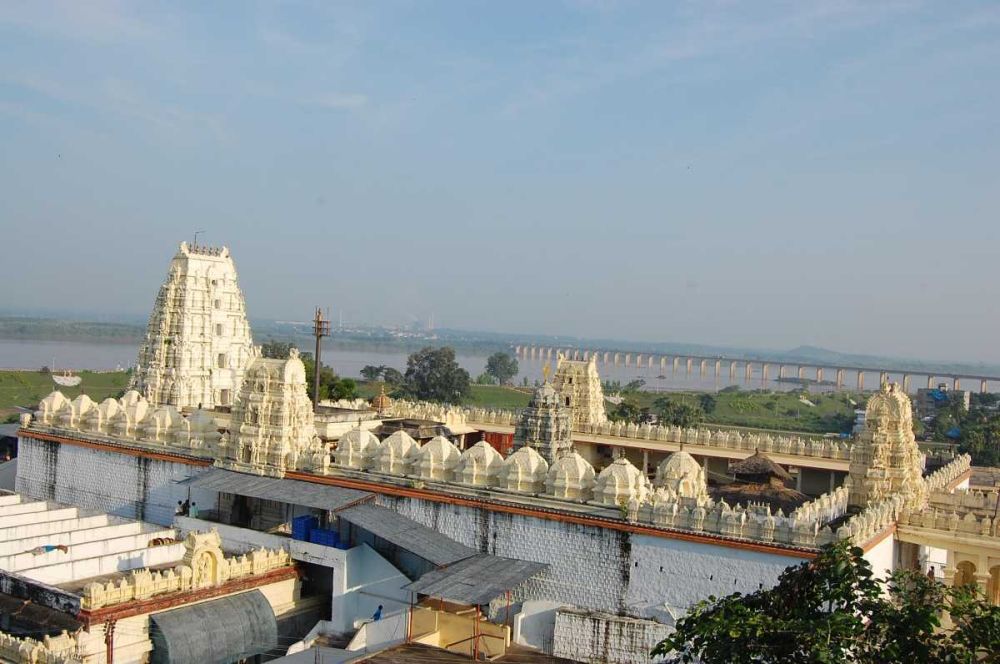

Bhadrachalam Temple, located in Khammam district of Telangana, India, is a significant pilgrimage center for Hindus and a major point of cultural heritage in the region. The temple is dedicated to Lord Rama and is considered one of the holiest temples in India, drawing thousands of devotees each year.
The history of Bhadrachalam Temple is intertwined with the legendary tale of Ramayana. According to local lore, the area where the temple currently stands was once the hermitage of Sage Bhadra who was a devout follower of Lord Rama. It is believed that Lord Rama, Sita, and Lakshmana visited the sage during their exile. Sage Bhadra expressed his desire to Rama to have his darshan in the form of the idols. Much later, the devotee Kancherla Gopanna, popularly known as Bhakta Ramadas, is credited with constructing the temple during the 17th century.
Tourism at Bhadrachalam Temple has evolved significantly over the years. Initially serving as a regional center of pilgrimage, the temple's fame has grown considerably, attracting visitors from across India and beyond. Several festivals, particularly "Sri Rama Navami", the birthday of Lord Rama, have become important events drawing vast numbers of pilgrims to the temple.
The local and state governments have invested in infrastructure to support the rising number of tourists, including better roads, improved accommodations, and the development of visitor services. The "Sri Rama Navami Kalyanam" performed here is considered highly auspicious, and during this festival, the tourism reaches its peak with live telecasts allowing even those at home to partake in the celebrations.
In recent years, ecotourism and cultural tourism have started to flourish in the area surrounding Bhadrachalam. Visitors are encouraged to explore the scenic beauty of the Godavari river and the nearby Dandakaranya forest, deepening their connection with the natural environment that is so intertwined with the lore of Lord Rama.
Additionally, there is a trend towards digitalization in tourism. Online darshan bookings, virtual tours, and e-donations have been introduced, making it easier for devotees and tourists to plan their visits and engage with the temple's services from afar.
Preservation of the religious and cultural integrity of the Bhadrachalam Temple is paramount. Efforts have been made to maintain the traditional architectural style and religious practices even as the temple complex adapts to modern demands. This ensures that the temple remains a living embodiment of the cultural heritage it represents while still accommodating contemporary tourists.
The Bhadrachalam Temple remains a beacon of Hindu spirituality and continues to captivate visitors with its rich history, vibrant cultural traditions, and serene natural surroundings.